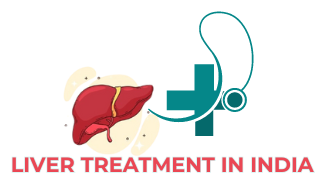WHAT ARE SOME COMPLEMENTARY THERAPIES FOR LIVER HEALTH AND HOW DO THEY WORK?
Given the liver’s critical function in metabolism, digesting, and detoxification, maintaining liver health is essential for overall wellbeing. There are potential Complementary therapies for liver health that enhances liver function and advancing health, which cover a wide range of holistic approaches outside of traditional medicine. These Alternative treatments for liver support, which range from acupuncture and natural remedies for liver health to nutritional supplements, are said to support liver regeneration, detoxification, and defense against oxidative stress. By comprehending the mechanics underlying these Complementary therapies for liver health, we can better appreciate their potential advantages and holistic approaches to maintaining liver health.
Herbal Supplements And Natural Remedies for Liver Health
An essential organ for metabolism and detoxification, the liver is crucial to preserving general health. There has been a rise in interest in traditional herbal medicines and dietary supplements that are known for their alleged hepatoprotective capabilities due to growing worries about liver illnesses and the negative consequences of modern lifestyles. The following explanation offers intriguing options for natural techniques of prolonging longevity and improving liver function by fusing traditional wisdom with modern scientific study.
Milk Thistle and it’s Role in Liver Health
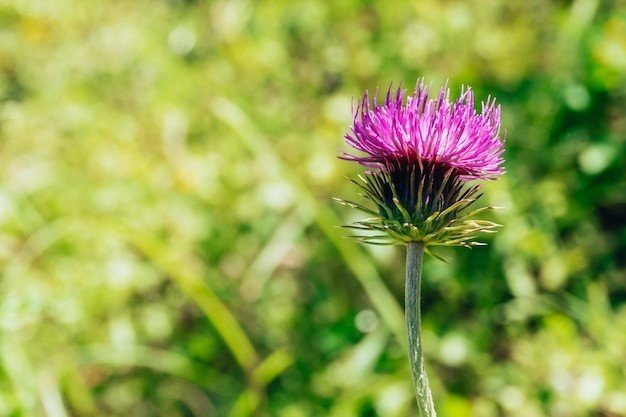
Silybum marianum, the technical name for milk thistle, has long been valued for its ability to support liver health.
- Milk thistle’s main component, silymarin, is a potent antioxidant that may shield liver cells from harm from pollutants and free radicals.
- Milk thistle has been used for generations by traditional healers to cure a variety of liver conditions, including as cirrhosis, fatty liver disease, and hepatitis.
- Numerous of these traditional uses have been supported by modern research, which suggests that milk thistle may really have hepatoprotective qualities.
- Research at the liver hospital indicates that silymarin may assist in the regeneration of liver cells, the reduction of inflammation, and the enhancement of liver function tests in liver disease patients.
- Its anti-oxidant qualities are believed to be vital in preventing oxidative stress in the liver and promoting overall liver health.
Dandelion Root and Good Liver Health
Dandelion root, which is abundant in vitamins, minerals, and antioxidants, is said to have detoxifying qualities that help the liver become cleaner and more vibrant.
- Dandelion root has been used traditionally in herbal alternative treatments for liver support as a natural cure for a variety of liver conditions, such as liver congestion, inflammation, and sluggishness.
- One of the main ingredients in dandelion root is taraxacin, a substance that is believed to encourage the liver’s production of bile.
- The proper generation of bile aids in the body’s removal of toxins, and it plays a critical role in the digestion and absorption of fats.
- Dandelion root may help relieve liver congestion and enhance overall liver function by encouraging bile flow.
- Furthermore, dandelion root is well-known for having diuretic qualities, which can help the body get rid of extra water and impurities.
- Due to its diuretic action, which lessens the load on the liver and encourages effective waste product evacuation, it may also improve liver health.
- Furthermore, flavonoids and polyphenols, two antioxidants found by the liver expert doctors in dandelion root, help shield liver cells from the oxidative damage brought on by free radicals.
Turmeric (Curcumin) For Liver Health
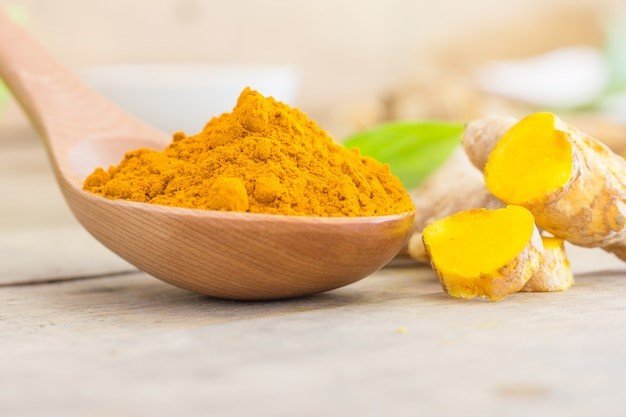
Due to its active ingredient curcumin, turmeric is becoming more and more popular in both the culinary and holistic health domains.
- Systems of traditional medicine like Ayurveda have long acknowledged its strong anti-inflammatory and antioxidant qualities.
- Recent years have seen a greater exploration of its possible advantages by science, especially with regard to promoting liver health.
- Numerous factors, including poor diet, alcohol consumption, and exposure to environmental contaminants, can cause oxidative stress and inflammation in the liver, an essential organ involved in metabolism and detoxification.
- Research at the best liver transplant hospital has indicated that the anti-inflammatory properties of curcumin could potentially mitigate liver inflammation and damage resulting from ailments such as non-alcoholic fatty liver disease (NAFLD) and hepatitis.
- Furthermore, the antioxidant qualities of curcumin can scavenge free radicals, lowering oxidative stress and halting additional damage to liver cells.
- Studies done by the liver treatment doctors indicate that curcumin may improve bile flow and production, which helps with digestion and toxin removal, so supporting liver function.
Traditional Chinese Medicine (TCM) And Healthy Liver
Using both herbal medicines and centuries-old traditions, Traditional Chinese Medicine (TCM) provides a comprehensive approach to liver health maintenance by balancing the body’s energy flow. TCM emphasizes balance and prevention, and the liver is seen as an essential organ that facilitates the healthy circulation of qi, or life force, throughout the body. TCM aims to treat liver abnormalities and enhance general health by combining acupuncture, natural remedies for liver health, dietary changes, and lifestyle advice.
Acupuncture: Strong Liver

- The goal of acupuncture is to stimulate particular sites along meridians, or energy channels, in order to balance the body and treat imbalances, particularly liver-related ones.
- Acupuncture stimulates the release of endorphins and other neurotransmitters and improves blood circulation by inserting tiny needles into certain places on the body, which promotes relaxation and overall health.
- It is thought that by lowering inflammation, encouraging cellular regeneration, and strengthening the body’s natural detoxification systems, this mild yet efficient method supports liver function.
- Acupuncture may also aid in treating underlying problems like stress, which, if left untreated, can aggravate liver dysfunction.
- Studies done by the liver treatment doctors on the effectiveness of acupuncture for liver health are still being conducted, but some point to the possibility of using it in addition to traditional alternative treatments for liver support for liver diseases like hepatitis, fatty liver disease, and liver fibrosis.
Chinese Herbal Medicines And their Benefits of Complementary Therapies For The Liver
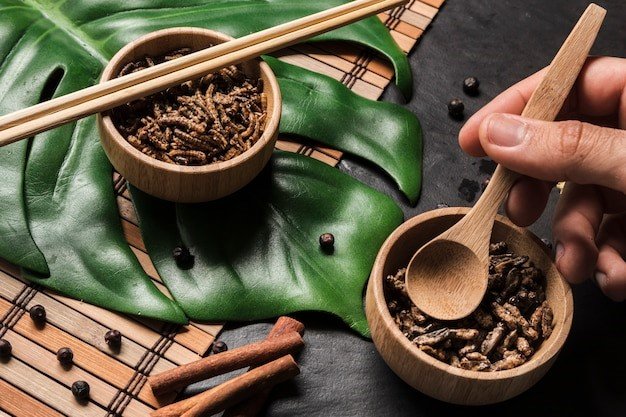
Traditional Chinese medicine (TCM), which has its origins in ancient China, considers the liver to be an essential organ for preserving general health.
- Herbs are frequently used in combination to treat particular imbalances and support the health of the liver.
- Milk thistle, also called Silybum marianum, is a key plant in Chinese medicine that has been shown to have positive benefits of complementary therapies for the liver function. It is thought to help liver regeneration and cleansing.
- Schisandra is another often used plant that is well known for tonifying the liver and enhancing its resistance to external stresses.
- Furthermore, licorice root is commonly used to mixtures to reduce inflammation in the liver and encourage healthy liver function.
- TCM practitioners emphasize the significance of reestablishing balance inside the body and customize herbal prescriptions to each patient’s specific constitution and health situation.
Herbs, dietary advice, acupuncture, and lifestyle changes are frequently used in this all-encompassing method to promote liver health and general vigor.
Ayurveda For A Strong Liver
The Indian subcontinent gave rise to the ancient holistic medical system known as Ayurveda, which provides a profound understanding of how to maintain optimal health via harmony and balance in the body, mind, and spirit. Ayurveda has many diverse uses, but one of its most important uses is in supporting liver health. It emphasizes the liver’s vital function in metabolism, detoxification, and general health. Ayurvedic principles, based on natural complementary liver therapies and centuries-old wisdom, provide a holistic approach to liver care that includes dietary changes, herbal remedies, lifestyle adjustments, and mindfulness exercises designed to support the liver’s essential functions and help the body regain balance.
Ayurvedic Herbs and How They Improve Liver

"BHUMYAMALAKI," OR PHYLLANTHUS NIRURI
- One of the most revered of these botanical marvels is “Bhumyamalaki,” or Phyllanthus niruri.
- Traditionally, this plant has been used to maintain liver health generally and to help with cleansing.
- Its strong antioxidant qualities aid in shielding the liver from oxidative stress brought on by pollutants and free radicals.
"KUTKI" (PICRORHIZA KURROA)
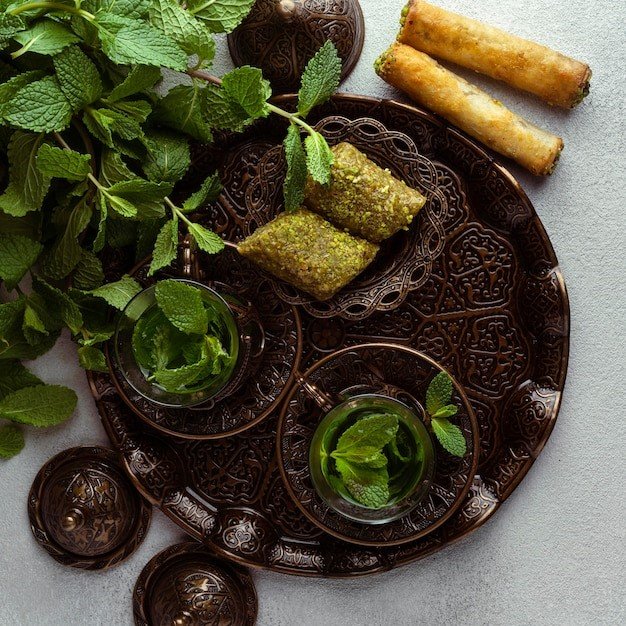
- Kutki is regarded as having hepatoprotective properties, which makes it an effective ally in the fight against liver diseases.
- It promotes the liver’s natural detoxifying activities and increases bile output, which aids in digestion. The bitter flavor of kutki attests to its potency
- In Ayurveda, bitter herbs are valued for their capacity to support liver health.
"TURMERIC," ALSO REFERRED TO AS "HARIDRA"
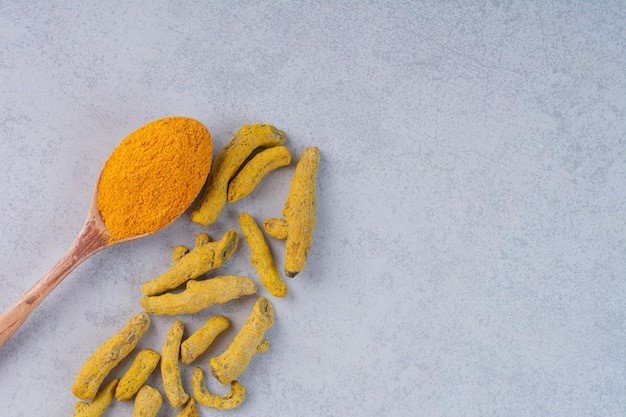
- Furthermore, the golden-hued spice “turmeric,” also referred to as “Haridra” in Ayurveda, is renowned for its numerous health advantages, including its significant effects on liver function.
- Turmeric’s major ingredient, curcumin, has anti-inflammatory and antioxidant qualities that lessen liver inflammation and guard against oxidative damage.
- Ayurvedic principles suggest that consuming turmeric as a supplement or including it into daily meals might help sustain a healthy liver function.
Panchakarma Therapy: Complementary Liver Therapies

- Vamana (emesis), Virechana (purgation), Basti (enema), Nasya (nasal administration of medicated oils), and Rakta mokshana (bloodletting) are the five main alternative treatments for liver support that make up the Panchakarma process.
- Together, these treatments help the liver cells regenerate, get rid of toxins, and return to normal. In particular, vivechana aids in the removal of excess Pitta dosha, which Ayurveda frequently links to liver diseases.
- The liver is deeply cleansed by Panchakarma, which boosts immunological response, improves digestion, and increases nutritional absorption.
- Furthermore, the treatment helps to lessen inflammation, promote liver regeneration, and lessen the symptoms of liver diseases like fatty liver disease, hepatitis, and liver cirrhosis.
- In order to maintain liver health after Alternative treatments for liver support, Panchakarma therapy also places a strong emphasis on lifestyle adjustments, such as dietary adjustments, stress-reduction strategies, and the use of herbal supplements.
Mind-Body Practices For Liver Conditioning
The complex relationship that exists between the mind and body in fostering general health and well-being has come to be understood more and more in recent years. In light of this knowledge, mind-body complementary liver therapies have become recognized as a viable means of promoting overall well-being, especially when it comes to liver conditioning. These practices cover a wide range of methods, from contemporary techniques like mindfulness meditation and deep breathing exercises to age-old customs like yoga and tai chi.
Healthy Liver: Yoga and Meditation

There are some yoga asanas or positions that are especially helpful in activating and enhancing the function of the liver.
- In order to help with detoxification, twisting positions such as Ardha Matsyendrasana (Half Lord of the Fishes Pose) and Parivrtta Trikonasana (Revolved Triangle Pose) can compress and release the liver, improve blood flow, and encourage the removal of toxins.
- Moreover, by aiding with digestion, these poses indirectly promote liver function.
- Additionally, by lowering stress and fostering relaxation, pranayama, or yoga breathing exercises, can benefit liver health.
- Since stress is known to have a deleterious impact on the liver, techniques including abdominal breathing, deep breathing, and alternate nostril breathing (Nadi Shodhana) can help reduce stress and its negative effects.
- The advantages of yoga practice for liver health can be further enhanced by including meditation into a daily regimen.
- The practice of meditation increases inner tranquility, lowers stress levels, and quiets the mind.
- Meditation helps liver health indirectly by lowering stress, which in turn stops the release of stress chemicals that over time might harm liver cells.
Tai Chi and Qigong and their Positive Effects On Liver

The ancient Chinese practices of Qigong and Tai Chi, which emphasize gentle movement and awareness, have drawn interest due to possible benefits of complementary therapies for the liver.
- These practices, which are sometimes called “moving meditations,” place a strong emphasis on slow, intentional movements, careful breathing, and concentrated concentration.
- Considering the importance of the liver in metabolism, detoxification, and energy storage, liver health is essential for general well-being.
- Studies at the best liver transplant hospital indicate that through improving circulation, lowering inflammation, and encouraging relaxation, Tai Chi and Qigong may have a beneficial effect on liver function.
- These exercises’ gradual, flowing motions improve blood circulation throughout the body, which helps the liver cells absorb nutrients and oxygen while assisting in the elimination of waste and toxins.
- Additionally, Tai Chi and Qigong’s meditation elements can aid in lowering stress and enhancing emotional equilibrium, both of which are critical elements in preserving liver health.
- Persistent stress can negatively impact the liver, causing inflammation and reducing its capacity to perform at its best.
- Tai Chi and Qigong may lessen the negative effects of stress by fostering a condition of inner harmony and tranquility, which will benefit liver health and general vigor.
Dietary Approaches For Maintaining A Healthy Liver
Dietary approaches, which include everything from particular food selections to general dietary patterns, are an effective way to support liver function. In order to increase longevity and prevent liver-related illnesses, it is essential to comprehend how dietary components affect liver function. In this talk, we’ll look at a variety of dietary strategies for maximizing liver health, from nutrient-dense foods to lifestyle choices that can protect the health of this vital organ. By implementing these tactics recommended by the liver expert doctors, people can improve general health and energy while also actively assisting their liver’s capacity to operate at its best.
Liver Health: Whole Foods and Plant-Based Nutrition

- Including entire foods in your diet, such as fruits, vegetables, whole grains, nuts, and seeds, gives you vital elements that your liver needs, like antioxidants, vitamins, and minerals.
- These nutrient-dense meals aid in the fight against inflammation and oxidative stress, two major factors that lead to liver illness and damage.
- A high-fiber plant-based diet facilitates regular bowel movements and helps with digestion, which helps the body get rid of waste and toxins.
- People can lessen the burden on their livers and aid in their detoxification processes by consuming fewer processed meals, saturated fats, and added sugars—all of which are frequently present in animal products and processed snacks.
- The risk of fatty liver disease, a condition that is becoming more common as a result of poor dietary choices and sedentary lifestyles, is further decreased by the fact that plant-based foods are frequently lower in cholesterol and saturated fats.
- Moreover, a healthy microbiome is fostered by a plant-based diet, which encourages the growth of advantageous gut bacteria associated with enhanced liver function and general health.
- Fermented foods such as kimchi, sauerkraut, and kombucha can improve the diversity of gut bacteria, which in turn helps with nutrient absorption and digestion while lowering inflammatory levels throughout the body.
Liver Health: Reducing Inflammatory Foods and Toxins
- Overconsumption of processed foods, alcohol, and environmental contaminants can overburden the liver, an essential organ involved in metabolism, detoxification, and nutrient storage.
- Foods high in processed sugars, refined carbs, and trans fats are examples of inflammatory foods that can aggravate liver inflammation and fatty liver disease. These Food Items overstress the liver, making it less able to operate properly.
- People may give their liver the vital nutrients it needs to flourish while lowering inflammation by emphasizing a diet rich in fruits, vegetables, lean meats, and healthy fats like those in nuts and avocados.
- Additionally, limiting exposure to pollutants is essential to maintaining liver health.
- Over time, insecticides, heavy metals, and environmental contaminants can build up in the body, burdening the liver and reducing its capacity for detoxification.
- Selecting natural cleaning and personal care products, filtering drinking water, and buying organic produce can all help lower toxin exposure and lessen the strain on the liver.
How Can Fasting Help In Cleansing Your Liver?
Modern diets frequently overburden the liver with processed meals, high fat content, and sugar content, which can result in fatty liver disease and other liver-related conditions.
Whether it is done for a longer period of time or intermittently, periodic fasting provides a natural way to reduce this load and encourage liver cleansing.
- Cycling between times of eating and fasting is known as intermittent fasting. One common method is the 16/8 method, which is fasting for 16 hours and eating within an 8-hour window.
- This regimen has demonstrated potential in lowering inflammatory indicators, enhancing insulin sensitivity, and decreasing liver fat—all of which are important for maintaining the health of the liver as a whole.
- Intermittent fasting helps the liver focus on cleaning and repair activities, making it a cleaner and healthier organ by relieving it of the constant burden of digesting.
- On the other hand, prolonged fasting, which usually lasts for 24 hours or longer, can cause autophagy, a cellular process that eliminates damaged parts and encourages regeneration.
- Long-term fasting may improve liver function tests, decrease the buildup of liver fat, and improve the body’s capacity to metabolize lipids.
- Prolonged fasting has potential among complementary liver therapies for people with liver disorders or those looking to optimize liver health, even if it requires close supervision and may not be appropriate for everyone.
Understanding complementary therapies for liver health reveals a variety of intriguing modalities that can successfully support traditional medical interventions. These therapies, which range from herbal supplements like milk thistle to acupuncture and yoga, offer a variety of processes that support liver health. These mechanisms include antioxidant qualities, reduced stress, and increased circulation. When starting your path to the best possible liver health, keep the best liver hospital in Mumbai, India, Jaslok Hospital in mind. It is well-known for its all-encompassing approach to medical care. Jaslok Hospital is dedicated to integrative medicine and has a comprehensive team of liver expert doctors who can help you achieve holistic liver and general health wellbeing. Book your appointment with our liver experts today by visiting our website.
